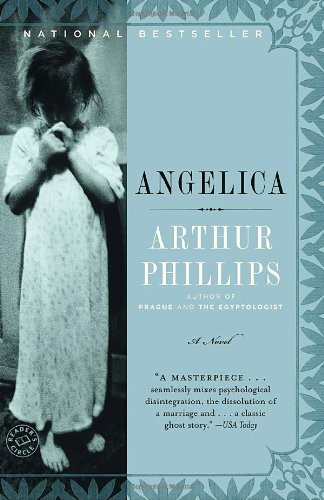
Angelica
A Novel
- اطلاعات
- نقد و بررسی
- دیدگاه کاربران
نقد و بررسی

February 12, 2007
Set in Victorian England, Phillips's impressive third novel uses four linked viewpoints to explore class, gender, family dynamics, sexuality and sciences both real and fraudulent, ancient and newly minted. Joseph Barton, a London biological researcher, orders his four-year-old daughter, Angelica, who's been sleeping in her parents' bedroom, to her own room. Joseph's wife, Constance, resists this separation from her child and the resumption of a marital intimacy that, given her history of miscarriage, may threaten her life. Soon Constance notices foul odors, furniture cracks and a blue specter that appears to attack Angelica while she sleeps. When she reports these supernatural visitations to the unimaginative Joseph, the rift between them widens. Desperate, Constance turns to actress-turned-spiritualist Annie Montague for help. Phillips (Prague
) captures period diction and detail brilliantly. At its strongest, the multiple-viewpoint narration yields psychological depth and a number of clever surprises; at its weakest, it can slow the book's momentum to an uncomfortably slow (if authentically Victorian) pace. Author tour.

Starred review from March 1, 2007
American expatriates in post-Communist Budapest ("Prague"), tomb robbers in the Nile Valley ("The Egyptologist"), and now ghoststhe award-winning Phillips is a writer of uncommon versatility. In this Victorian tale told with a modern sensibility, Constance Barton is determined to protect her daughter, the eponymous Angelica, from her sexually voracious husband, Joseph. Spiritualist Anne Montague comes to the rescue and taps into tidy sums from the grateful wife, whose husband, Joseph, seeks to protect his daughter, Angelica, from her deranged mother, Constance, who has hardly shared his bed since their daughter's birth. Thus we do "not" come full circle, for Angelica relates the fourth part of the novel from again a different viewpoint. Readers can expect to be mightily confused and amused by this ghostly thriller-spoof, which gives Henry James a run for the money. Phillips's control of language and exquisite writing (you are actually transported to the London of Dickens) is worth the price of admission. Highly recommended for everyone who has ever worried that there is a ghost under the bed. [See Prepub Alert, "LJ" 12/06; for an interview with Phillips, see p. 68.]Edward Cone, New York
Copyright 2007 Library Journal, LLC Used with permission.

January 1, 2007
Following multiple pregnancies with dire outcomes, Angelica is finally born to Joseph and Constance Barton, and after a rough beginning, mother and daughter bond. When Angelica turns four, Joseph announces that it is time for the child's bed to be moved to her own room. Alone with her husband, Constance fears his amorous attentions; the doctors have warned her that another pregnancy would be lethal. Constance notices apparitions in Angelica's bedroom while her daughter sleeps. Seeking guidance, she enlists a spiritualist, Anne Montague. But Anne is more of a psychologist than a mystic, and her intuition tells her that the ghosts are a manifestation of Constance's subconscious awareness of Joseph's harmful intentions toward the child. In a " Turn of the Screw-" like exercise, best-selling author Phillips (" Prague" , 2002, " The Egyptologist" ,2004) expertly depicts the repressiveness of the Victorian era, well attuned as he is to the subtle and dramatic transformation of familial roles that occur when a child is introduced into the family dynamic. Phillips re-tells the same events from four perspectives (a la " Rashomon)" , revealing just enough information each time to change the reader's allegiances. (Reprinted with permission of Booklist, copyright 2007, American Library Association.)




دیدگاه کاربران